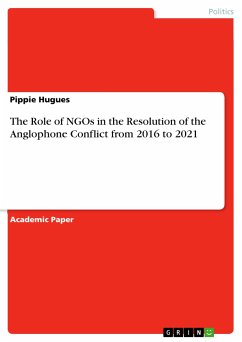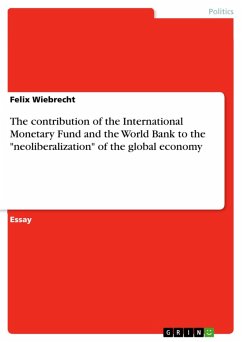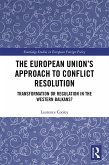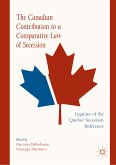Non-governmental organisations (NGOs) have become important actors in the globalised world. They run aid and relief programmes in the poorest countries, support international institutions (like the United Nations), or are watchdogs of them (for example watchdogs of the Bretton Woods institutions). In doing so, NGOs naturally work permanently with state-agencies and it is probably hard to find an NGO which is totally free of any governmental support (in financial, logistical or informative matters). Thus, there are strong NGO-government connections on a daily-work basis. NGOs run multiple attempts to contribute to the resolution of conflicts on all political levels. They bring together people on the grass-root level, they try to influence high officials through public pressure and they organise conferences and discussions with members and consultants of the concerned parties. The latter approach is analysed in this study. But how do NGOs influence the level of official international relations? To which degree can NGOs improve the relations of two conflicted parties, especially when the conflict is protracted and severe? The aim of this study is to define the preconditions of successful NGO mediation, to measure the NGO influence as an ¿antecedent condition¿ for successful mediation, and to exhibit its limits. The underlying assumption is that conflict resolution is more likely if NGO mediation supports this attempt. This approach can be labelled as an ¿assumption of constant effect¿ since the focus is on understanding the NGOs influence on international conflict resolution. Three cases of NGO-led mediation attempts are analysed. The cases are selected because of their problematic official relations are chosen under criteria of comparatibility. Thus, they have similar conditions (framework) in common; namely, in matters of time, territory and main actors. The case studies analysed are seated in the Middle East because negotiations between Israel and Palestine were (and still are) highly conflicted, protracted and many mediation attempts by third-parties have taken place there. The analysis of these three cases - their differences and similarities - shall lead to a better general understanding of the possibilities and limits of NGOs and the necessary preconditions.
Dieser Download kann aus rechtlichen Gründen nur mit Rechnungsadresse in A, B, BG, CY, CZ, D, DK, EW, E, FIN, F, GR, HR, H, IRL, I, LT, L, LR, M, NL, PL, P, R, S, SLO, SK ausgeliefert werden.









